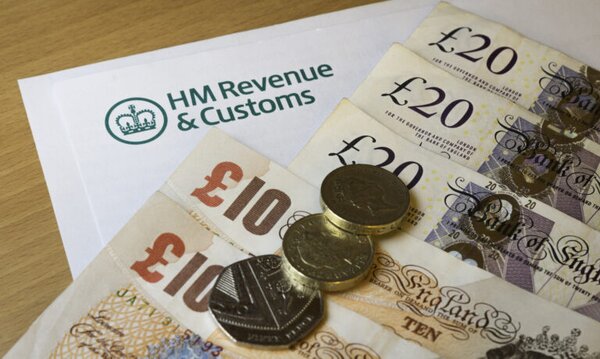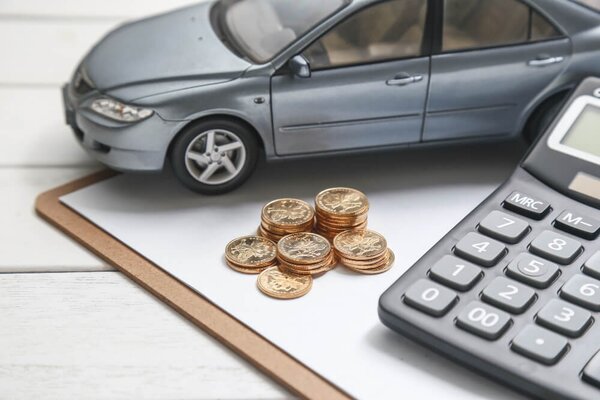Let’s Break This Down Together...
Got private pensions and wondering if you need to file a Self Assessment? It’s not always straightforward, and many people only discover an issue when HMRC sends an unexpected bill.
This article explains when pension income needs reporting, how different tax bands affect you, and what to watch out for with contributions and allowances. We’ll also cover record-keeping, reclaiming overpaid tax, and strategies to maximise your savings.
By the end, you’ll know how to stay compliant, avoid penalties, and keep more of your retirement income. Ready to make sense of it all? Let’s dive in.
When You Need to Report Pension Income on Self Assessment
You’ll need to complete a Self Assessment tax return for your pension income in several common situations. If your pension provider doesn’t deduct tax through PAYE, you’re responsible for reporting this income yourself.
When you have multiple pensions or income sources that push you into a higher tax band, PAYE might not collect the right amount. An incorrect tax code can result in under- or overpayment of tax. This happened to my father, who was shocked to receive an unexpected tax bill after drawing from two separate pensions.
For example, if you receive income from two different pension providers and neither applies the correct tax code, you may not pay enough tax during the year. In this case, you would need to report all your pension income on your Self Assessment tax return to ensure your tax liability is calculated correctly.
If you’re already completing Self Assessment for other reasons, such as self-employment or property income, you must include your pension income too.
Taking large pension withdrawals can trigger unexpected tax issues. PAYE might initially overtax you, requiring you to reclaim overpayments later. In such cases, you may be eligible for a tax rebate if you have overpaid tax.
How Pension Income Is Taxed
Your pension income gets added to your other income for the tax year. The standard Personal Allowance (£12,570 for 2024/25) applies, meaning no income tax on income up to this threshold.
Income between £12,571 and £50,270 is taxed at the basic income tax rate of 20%. Income between £50,271 and £125,140 faces the higher income tax rate of 40%, which is particularly relevant for a higher earner.
For income above £125,140, you’ll pay the additional income tax rate of 45%. Additional rate taxpayers, those earning over this threshold, should be aware of their specific tax obligations. Remember that your Personal Allowance reduces by £1 for every £2 you earn over £100,000.
Your allowance disappears completely at £125,140, making effective tax planning crucial for higher earners and additional rate taxpayers with substantial pension income.
The tax due on your pension income is calculated based on your total income for the year, including all sources, and the applicable income tax bands.

Annual Allowance and Pension Contributions
When planning your pension contributions, it’s essential to understand the annual allowance; The maximum amount you can contribute to your pension each tax year while still benefiting from tax relief. For the 2025/2026 tax year, the standard annual allowance is £60,000 or 100% of your earnings, whichever is lower.
However, if you’re a high earner, you may be subject to the tapered annual allowance, which gradually reduces your allowance if your income exceeds £200,000. This means very high earners need to pay close attention to their total contributions to avoid breaching the limit.
Both your own pension contributions and those made by your employer count towards your annual allowance, as do any third-party contributions. Exceeding your annual allowance can result in an additional tax charge, so it’s important to keep track of all payments made into your pension during the tax year. By understanding how the annual allowance works, you can make informed decisions about your pension savings and avoid unexpected tax bills.
Importance of Accurate Record-Keeping
Keeping accurate records is a cornerstone of effective pension and tax management. Every time you make pension contributions, whether to a workplace pension, private pension, or stakeholder pension, you should keep detailed records, including the total amount contributed and the tax relief claimed.
Your pension provider will usually send you an annual statement summarising your contributions and any tax relief automatically added, which is especially important for registered pension schemes.
If you’re self employed, it’s even more crucial to maintain thorough records of your business income, expenses, and pension contributions, as you’ll need this information when completing your self assessment tax return.
Accurate record-keeping ensures you can claim the correct amount of tax relief, stay within your annual allowance, and provide evidence if HMRC requests verification. Good records also help you avoid mistakes on your assessment tax return, reducing the risk of penalties and making it easier to manage your pension and tax affairs year after year.

Maximising Pension Contributions
Making the most of your pension contributions can significantly boost your retirement savings and reduce your overall tax bill.
One effective strategy is to use the Carry Forward Rule, which allows you to add unused annual allowances from the previous three tax years to your current year’s allowance. This is particularly useful for high earners or anyone who has experienced a recent increase in income, enabling you to make larger pension contributions without incurring extra tax charges.
You can also consider making additional voluntary contributions (AVCs) to your workplace pension or increasing payments into your private pension. If you’re a higher or additional rate taxpayer, don’t forget that you may be eligible to claim additional tax relief on your pension contributions through your self assessment tax return, beyond the basic rate tax relief your pension provider claims automatically.
By maximising your pension contributions and ensuring you claim all available tax reliefs, you can grow your pension pot more efficiently and secure a more comfortable retirement. For tailored advice on how much tax relief you can claim and the best approach for your individual circumstances, it’s wise to consult a financial advisor or tax professional.
Final Thoughts
Understanding how and when to report your pension income through Self Assessment is crucial. This knowledge helps you stay compliant and avoid unexpected tax bills.
Taking time to learn these rules can save you money and stress. It ensures you make the most of your hard-earned retirement savings.
HMRC is increasingly focusing on pension taxation. This makes it more important than ever to get your reporting right the first time.
Simplifying Pension Tax Reporting
Managing pension tax doesn’t need to be overwhelming with the right support at hand. At PIE, our team of tax experts can guide you through how different pension withdrawals affect your overall tax position.
We’ll walk you through how pensions combine with other income sources, making sure you understand your allowances and spot potential savings. Our advisers also flag common issues like incorrect tax codes or overpaid tax, helping you stay on top of your obligations.
Whether you have multiple pensions, overseas elements, or just want clarity on how much tax you’ll owe, our experts are here to make things clearer. Take a look at PIE if you’d like tailored advice to simplify your pension tax.
Quick and Easy Guide to Add Pension Contributions
Follow these steps to add pension contributions in the Pie app
Open the Pie Tax App and find the 'Quick Add' button in the middle of the navigation bar.Click 'Quick Add' in the Navigation Bar

After clicking 'Quick Add', select 'Add tax relief' from the screen to open the options menu.Select 'Add tax relief'













